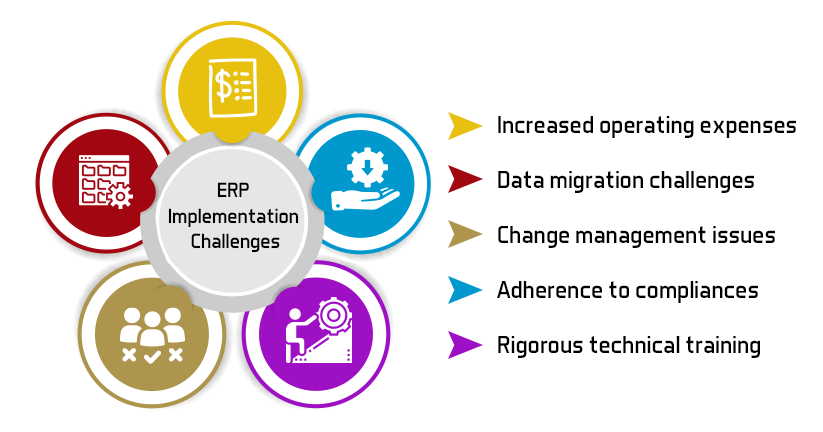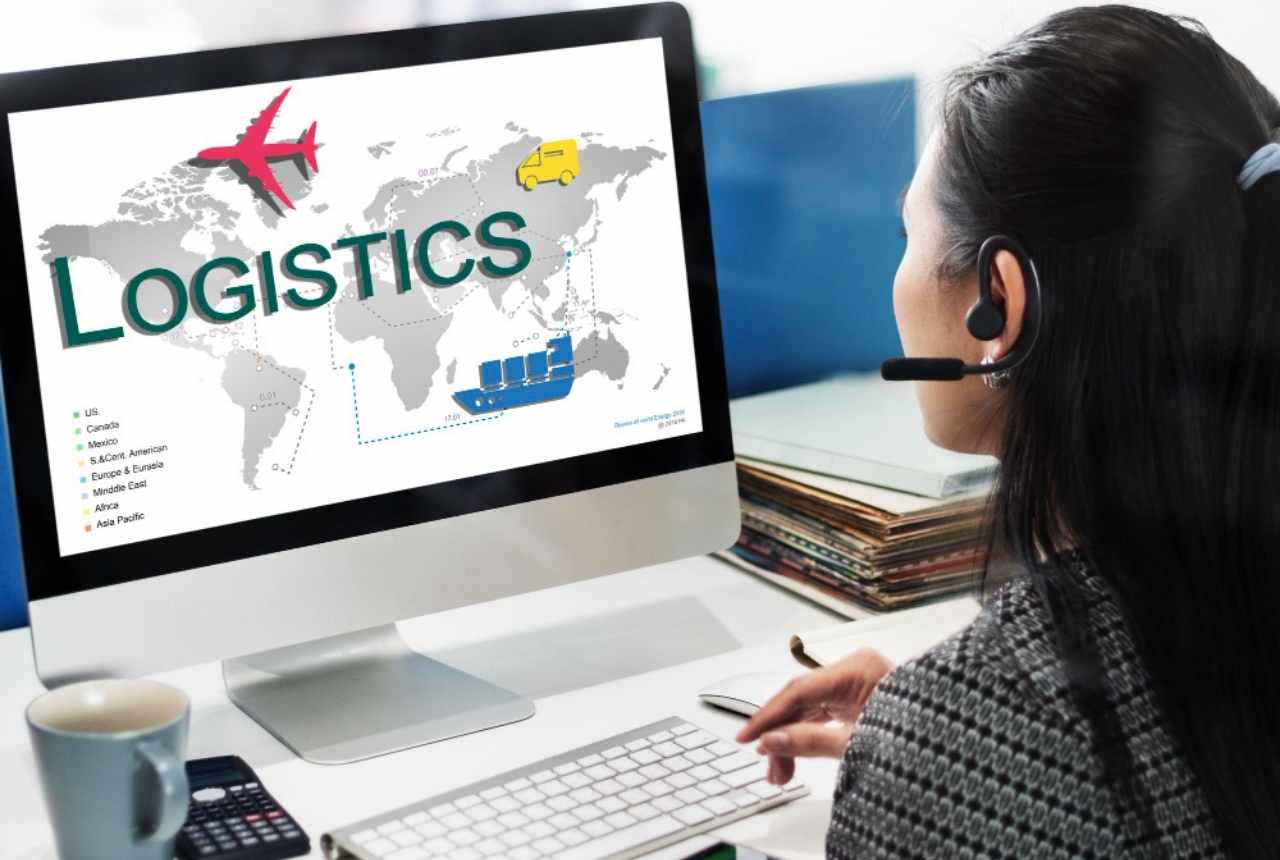Synopsis: ERP implementation is a challenging task that can put a halt on business operations if not done correctly. Companies need to continuously motivate their employees and monitor the process to see that everything goes smoothly and each stakeholder faces minimum challenges.
What is ERP software?
Enterprise Resource Planning software has become a part and parcel of businesses across industries. No company can think of surviving in the market, let alone competing with other players. ERP systems play a significant role in helping you manage critical business functions, such as sales & marketing, manufacturing, finance & accounting, managing relationships with vendors/suppliers/distributors, developing robust and evergreen customer relations, and handling inventory and warehouse management.
What are the benefits of ERP software?
The list below will shed light on some of the benefits of ERP systems:
1. Your sales team can sort prospects in the sales pipeline based on various parameters like:
a. Follow-up stage
b. Potential meetings
c. Meetings completed
d. Proposals made
e. Negotiations started
The best part is that that they can complete the sorting process in a simple drag and drop fashion.
2. Your marketing team can brainstorm effective customer acquisition and retention strategies based on crucial customer data such as geography, demography, psychography, behavior, ticket size, and past purchasing pattern.
3. Your support service department can form long-lasting customer relationships by interacting with them 24/7 and by acting on their feedback instantly.
4. Your ERP system sends continuous alerts and reminders to all business stakeholders allowing them to stay updated with real-time information.
5. Your manufacturing department can conveniently monitor the conversion of raw materials into finished products and check whether all the guidelines and specifications are being adhered to.
6. Your finance & accounting team can automate trivial jobs like creating invoices, maintaining and updating ledgers, and clearing taxes on time.
7. Your inventory and warehouse team can monitor the supply of raw materials and finished products in the stockpile. If the number of raw materials goes below the set threshold, the ERP will automatically send a purchase order to the vendor.
8. Your ERP can automate the process of selecting the best supply chain partners from a long list of vendors/suppliers/distributors.
9. Your ERP system comes with an integrated data analytics feature that can collect and process huge volumes of data. This helps to get a comprehensive understanding of the changing customer preferences and transforming market trends.
10. Your ERP system keeps you tax compliant by allowing you to adhere to government norms and practices. It also has a GST module that keeps you updated about any new changes in the GST regime.
Why is ERP implementation so difficult?
After reading how Enterprise Resource Planning solutions can help you in conducting business efficiently, it is time to delve deep and get a complete picture of the ERP implementation challenges and how you can overcome them.
ERP systems can be implemented in two ways — On-Premise and On-Cloud.
On-Premise ERP systems are deployed inside your office building. They are massive systems with several servers and network ports that require a separate room for installation.
Want to know how ERP systems can help you in achieving your goals and how to implement them? Read the guidebook “ERP Full Form” by clicking on the picture below.
The following list provides the advantages of an On-Premise ERP system:
1. The most significant advantage of an On-Premise ERP system is robust data security. Since the On-Premise ERP system is situated within your office, no external entity can use it. Also, unlike their On-Cloud counterparts, all the updates are done by the in-house technical team and not by external third-party vendors. It significantly reduces the exposure of critical business data to external stakeholders.
2. Once the ERP implementation process is finished, you no longer need to depend on an ERP vendor. It will substantially reduce your operational expenses because you don’t have to pay for the services of any third party.
3. Employees with a non-technical background require intensive training to learn how to operate an ERP. In the case of an On-Premise ERP system, your in-house technical team will provide the necessary training. You don’t have to pay the training fees to any third-party vendor.
4. Providing customized solutions is one of the biggest assets of your ERP suite. The in-house IT experts have a first-hand view of your company’s challenges that helps them develop solutions specifically tailored to your business needs.
What are the challenges when implementing and upgrading enterprise systems?
1. Implementing ERP can be challenging for most businesses. It is because On-Premise ERP solutions can significantly raise the operating expenses of the business. There are numerous reasons behind this. Firstly, they occupy a lot of office space for installation. So you need to ensure that you can pay higher rent. Secondly, you should have an in-house IT team that has decades of experience and access to the best quality software. It is one of the biggest challenges for small and medium enterprises to have a separate IT team because they lack the required financial resources to support one.
2. On-Premise ERP implementation can adversely impact the process and functioning of the sales department in your business. The following example will shed light on it. Suppose your sales team qualifies a lead and requires important documents before the customer can make the final purchase. In that case, the salesperson will go to the client’s place, collect the required documents, and carry them to the office for uploading them in ERP suite. Do you think this process adversely impacts your business? You will get a detailed answer in the next section when we talk about On-Cloud systems.
3. One of the most significant disadvantages of On-Premise ERP implementation is that it can disrupt the functioning of the business for a long time. Your company’s employees will have to work for extended periods in order to learn the basics of the new system. Some projects may be called off and others might have to be temporarily put aside. The senior management will have to create new workflows and redesign employee duties so that the business runs smoothly.
4. Some of the most challenging aspects of an ERP implementation are as follows:
a. Additional ERP modules come at an extra cost.
b. Only the in-house IT team is responsible for the upkeep of the new system because you aren’t dependent on any third-party vendor.
c. Data migration can be a serious headache during the implementation phase. Critical business data may be stored in different repositories across various departments of your company. It is essential to retain crucial information and delete duplicate data to save expensive memory space in the new ERP.
d. Change management can easily be touted as the toughest of all ERP implementation challenges. Front-line users resist the change as they find it extremely difficult to learn the functioning of the ERP system. As the leader of your company, you need to motivate different business stakeholders by communicating the merits and features of ERP implementation.
What challenges can ERP solve for an organization?
Now that we have a complete picture of ERP implementation challenges, it is time to look at how an ERP solution can help your organization.
On-Cloud ERP suites are rapidly being adopted by companies worldwide. The following reasons explain why:
1. They are way cheaper than their On-Premise counterparts, which makes it easy for small and medium enterprises (SME) to purchase them.
2. Their implementation and upkeep are also very easy. It is because SMEs don’t have to worry about paying extra money for the ERP installation. The third-party vendor takes care of buying expensive servers and managing the network issues. Thus, a lack of financial resources is not a significant challenge anymore.
3. On-Cloud systems make change management a piece of a cake because employees no longer have to stay in the office for extended periods. Third-party vendors provide technical training that helps to ensure that employees can learn on the go.
4. Companies have to mull over data security challenges during an ERP implementation. The best part about On-Cloud ERP systems is that the third-party vendor takes care of all cybersecurity challenges for your company. You don’t need an in-house IT team to provide round-the-clock protection for the new ERP.
5. An ERP implementation requires numerous version updates and technology upgrades periodically in order to brainstorm market-specific strategies as well as to provide tough competition to other market players.
6. The implementation of the On-Cloud ERP suite is a boon for your sales team. Remember we touched upon this topic previously and had promised to give you a valid explanation later. Well, here it is. With an On-Cloud ERP solution, your salesperson can collect all the important documents from the client’s place itself. They don’t have to return to the office to upload the documents. In short, it allows working on the go and saves a lot of time.
7. On-Cloud ERP solutions can be integrated with the employees’ smartphone to ensure that they can access critical business documents 24/7 as well as take the managers’ assistance from anywhere and at any time.
8. Have you ever considered what is the deployment time of an On-Premise ERP solution? It extends somewhere between six to twelve months. On the other hand, the implementation of the On-Cloud ERP system takes not more than 72 hours. Some of your employees might resist the implementation of On-Premise ERP only because they take a lot of time. If you are dealing with a similar scenario, then On-Cloud ERP is the best choice for your company.
9. Do you have a full-fledged IT team? Are they doing low-value activities like collecting data from various sources? Lack of an On-Cloud ERP solution can waste a lot of time of your IT team. On the other hand, by implementing one you can offload trivial jobs to the ERP suite that will free up time for your IT employees who can then focus more on strategic tasks.
10. On-Cloud ERP suites allow you to be more environment-friendly. Third-party vendors provide ERP capabilities to numerous companies on a shared infrastructure that reduces the need to maintain separate servers and also saves electricity.
Conclusion
ERP solutions have become the backbone of all businesses across industries. It’s because they support each business operation and also help build robust and long-lasting customer relationships. Their ability to collect critical business data from multiple sources and how they build unique customer personas makes them extremely useful for different business scenarios. This article has given you a complete picture of ERP benefits and the challenges associated with ERP implementation.
If you desire to get a better understanding of ERP, please refer to the following guide by clicking on the picture below.
At Sage Software Solutions (P) Ltd., we are home to world-class On-Cloud ERP software and CRM software that will solidify your business tech support fundamentals and enable you to build a customer-centric organization. You can also write to us at sales@sagesoftware.co.in. We will provide you all the required support to implement a Cloud-based ERP solution in your company. Book an appointment today!
If you liked this article, don’t forget to share the link with your friends. Also, follow us on:
Disclaimer: All the information, views, and opinions expressed in this blog are those of the authors and their respective web sources and in no way reflect the principles, views, or objectives of Sage Software Solutions (P) Ltd.





